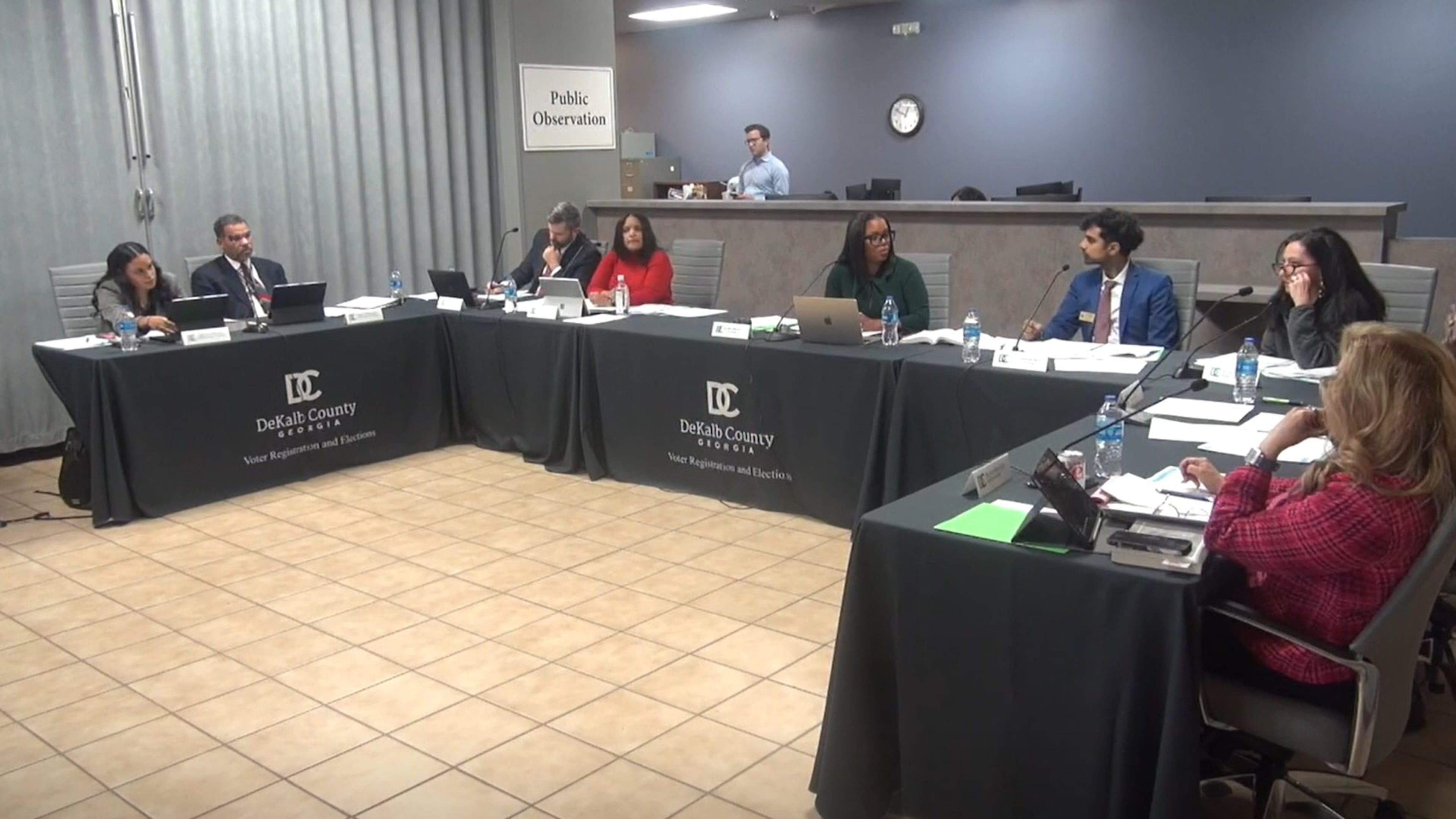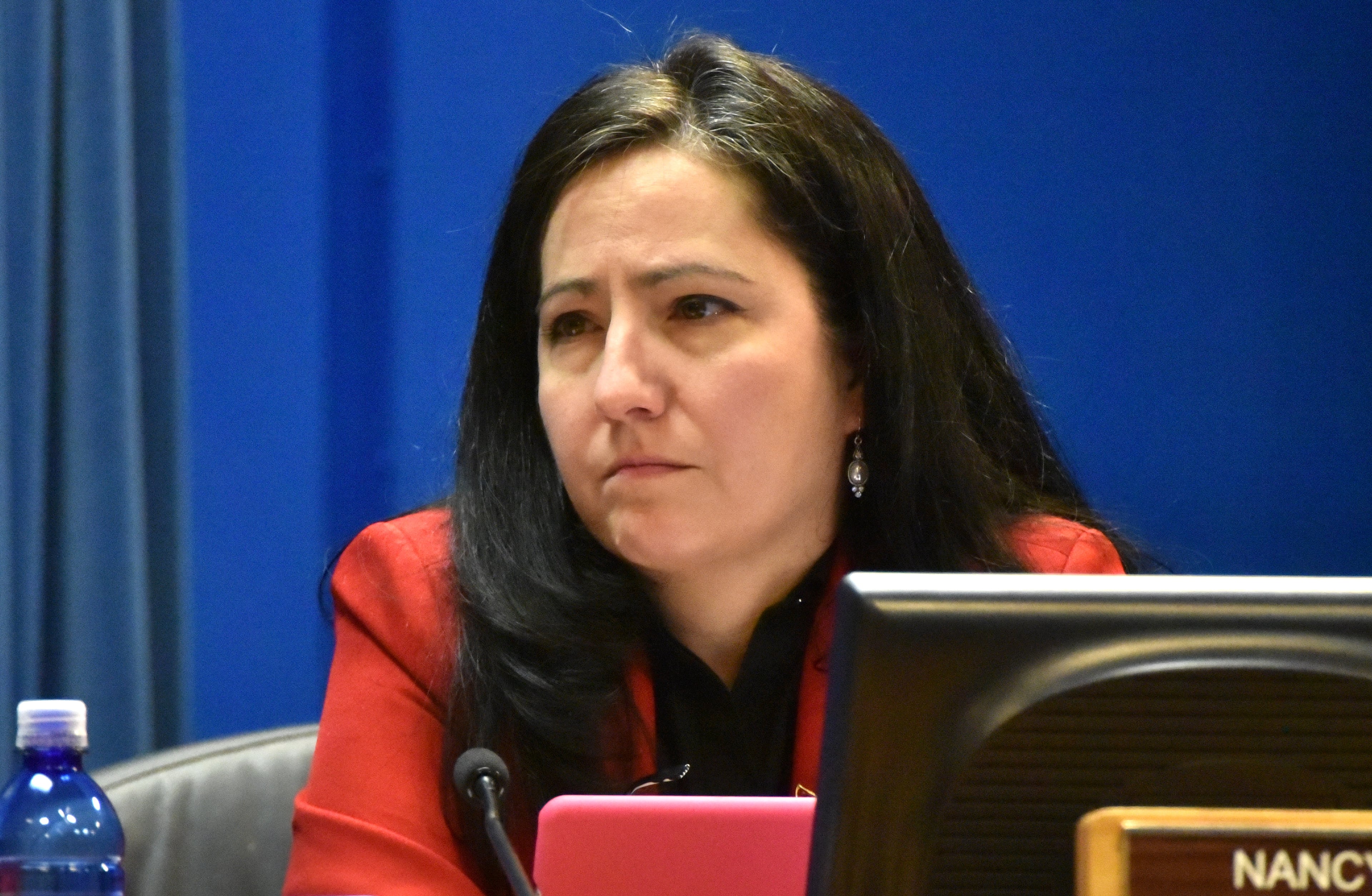Several Republican officials vote against certifying Georgia elections

Refusing to sign off on results, several Republican election board members in metro Atlanta counties voted recently against certifying their local elections.
The outcome of the elections wasn’t in doubt, but these GOP board members said they were justified because of voter check-in data errors, districting mistakes and concerns about voting machines. Election officials said they corrected technology issues, which affected a small number of voters.
Voting rights advocates said the Republicans used minor problems to cast doubt on elections, though the board members said they were taking a principled stand for election integrity.
Republicans have repeatedly cast doubt on elections since President Donald Trump narrowly lost his 2020 reelection bid, changing state voting laws, calling for hand ballot counts and questioning the security of voting machines. Investigations have repeatedly debunked allegations of ballot stuffing, illegal voters, rigged machines and counterfeit ballots.
The unusual votes against certifying elections by four Republican election board members in Cobb, DeKalb and Spalding counties weren’t successful. The majority of each county’s board voted in favor of certifying their elections last week.
Democratic state Rep. Saira Draper told DeKalb election board members at their meeting last week that refusing to certify was an “extreme position” that, if approved, would have disenfranchised thousands of voters.
“By voting against certification of the results of the municipal elections without evidence of material problems, Republican members of the DeKalb Board of Elections are eroding trust in our democracy and laying the groundwork to say the 2024 election, or any future election where they do not win or accept a loss, is rigged or stolen,” Draper told The Atlanta Journal-Constitution on Tuesday.

Nancy Jester, one of the Republican board members who wouldn’t certify the election, said she lacked confidence in the election because of how the county handled voting machines after some voters were assigned to the wrong Atlanta Public School Board district.
Jester objected to reprogramming voting machines during an election without public observation and rigorous testing. After programming errors last year in a race for the DeKalb County Commission, a manual recount changed the results.
“My ‘no’ vote means I can’t guarantee to the public that there isn’t something bad happening when you open up a machine in the middle of an election,” Jester said. “The election didn’t meet a standard of quality that I think it needs to meet. They need to fix it now, because if they don’t, it’s going to cause a lot of problems next year.”
If a county election board refused to certify a major election — such as a presidential race — its results could be delayed and disputed. Certification is a mandatory step to finalize results.
The matter would likely have to be decided by the courts. Georgia laws require election officials to verify and certify results.
In Cobb County, Republican election board member Debbie Fisher said she opposed certification because she didn’t understand why voter check-in data for some early voters appeared twice on reports generated by the secretary of state’s office. State election officials said they quickly resolved the programming issue between check-in systems and registration computers.
“All of these numbers should match. And if they don’t match, there should be questions asked,” Fisher said at Cobb’s certification meeting. She didn’t return a phone message seeking comment.
Cobb election board Chairwoman Tori Silas, a Democratic nominee, said she’s concerned that votes against certification indicate a lack of confidence in the process.
“It would be unfortunate if a member of that board were suggesting that the public, Cobb voters, should not trust the work that we are responsible for,” Silas said. “I’m hopeful it’s not precedent-setting.”

Nearby in Fulton County, Republican election board member Michael Heekin voted to certify elections after the county conducted a second ballot count. He called on state election officials to eliminate data inaccuracies long before Georgia’s March 12 presidential primary.
“The alternative is unthinkable,” Heekin said.
Roy McClain, a Republican election board member in Spalding County who voted against certifying the election, didn’t respond to emails seeking comment. Spalding counted ballots by hand to confirm the machine count, finding no discrepancies larger than three votes among over 5,500 ballots counted.
“If both sides don’t trust the voting system, then you have a problem,” McClain said before his vote in Spalding, where 60% of voters backed Trump in the 2020 election.
The fourth Republican board member who opposed certification, Anthony Lewis in DeKalb, didn’t explain his vote but said during the board meeting that his job was to “achieve some balance” on the board, which has three Democrats and two Republicans.
No Democratic election board members appear to have opposed certifying elections.
It’s rare for counties not to certify elections, but it happened before in the 2020 presidential election in Coffee County.
The Republican-led Coffee election board declined to certify a recount because of a 51-vote discrepancy. The secretary of state’s office has said it appeared that a batch of ballots might have been scanned twice. Trump won 70% of the vote in Coffee County.
Secretary of State Brad Raffensperger certified Georgia’s presidential race with vote totals that the Coffee election board approved from the first vote count.
One month later, computer analysts working with Trump supporters visited Coffee County to copy the state’s voting software and other election data. The breach eventually led to conspiracy charges that are now pending in Fulton County.



